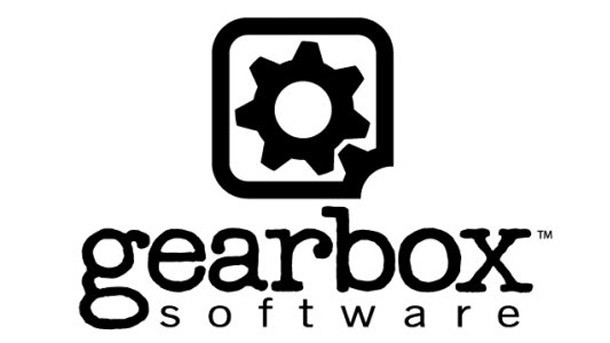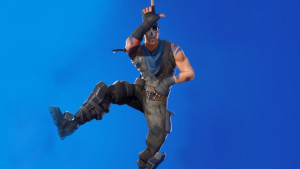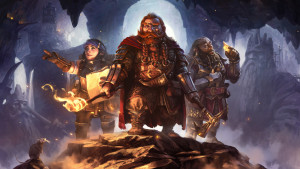Please support Game Informer. Print magazine subscriptions are less than $2 per issue
Gearbox On The Past, Present, And Future Of Co-Op Play

With the original Borderlands, Gearbox presented one of the most seamless, accessible co-op experiences seen to date on consoles. It was great fun playing solo, but the addition of a friend (or three) really served to make it something special. It'll come as no surprise that cooperative play will be a large part of Borderlands 2 as well, so we talked to game design director Paul Hellquist and game designer Jonathan Hemingway about their thoughts on the past, present, and future of this breed of multiplayer.
What’s the first co-op experience you have memories of?
Jonathan: Contra. Contra is it. Me and my older brother. I don’t think we ever got to the point where we could beat it without the 30 lives. We could totally take it down with 30.
Paul: First co-op…I think it was Doom II. That was probably my first co-op.
So you weren’t a big NES or arcade gamer?
Paul: I did have an NES and I rented everything that our small-town video place had, but my brother didn’t play them with me. Jeopardy was adversarial, I guess.
Jonathan: Contra is the one I could get my older brother to play with me. With my friends, sometimes we’d play Bubble Bobble or something else.
Did you actually manage to beat Bubble Bobble?
Jonathan: I did! I never beat it two-player, no one would ever agree to “Come on, let’s play all 106 levels!.” “No Jon, no…you’re insane.”
Throughout the history of co-op play, what do you consider the primary milestones? What titles really pushed it forward?
Jonathan: It started out really simple, right? Contra technically had co-op, but there really wasn’t much special other than “we’re both on the screen at the same time shooting the same bad guys.” There’s a lot to be said for an experience that’s very simple like that. Today, World of Warcraft is an example of a big co-op game where a lot of their class design really solidifies what their co-op is. “Oh, I’m a tank. My job is to stand up front. Oh, I’m a healer. I’ll keep you alive. I’m an AOE nuker, or I’m a disabler,” whatever. That’s a much more locked-in co-op experience. Very, very different from Contra, where you’re just playing together. [In WoW] you have specific roles and you succeed or fail as a group.
Paul: Even though there had been first-person shooters on consoles prior to Halo, I think Halo was the one that sort of made it an actual genre. When they did co-op, it also brought that to the masses. I think Left 4 Dead was another big moment, because they had their adversarial stuff and that was great, but playing against the zombies with a group in something other than a class-based thing was another really strong moment. As the future looks back on us, I hope Borderlands will also be seen as one that really brought co-op to a lot of people who hadn’t done it before.
Jonathan: For me, going back, Diablo was another one. I mean, Diablo is the root of Borderlands. I played a ton, ton of co-op on that one.
Paul: Yeah definitely, that’s a good one. We played a crapload of that. We had all kinds of LAN parties for Diablo when I was in college. Now that you mention it, that was really one of the ones that I did the most of.

Until recently, co-op play on consoles has been limited to local multiplayer. Before that, you could go to an arcade and play X-Men with five strangers. Do you think something was lost in terms of co-op play with the death of arcades? Do you think online play now is bringing some of that feeling back?
Paul: I think the death of arcades is an interesting one. I think that might have been why it sort of vanished for a while. I do think online has empowered more people to be able to play together, especially as our world gets smaller and people move away but still want to keep in touch. Online stuff allows people to still do that, while you can’t really do split-screen with your friend that lives in Los Angeles. Yeah, that’s interesting. I hadn’t really thought about that. Online is definitely bringing it back, and I think people have started to realize that gaming can be a time just to get together and enjoy being with your friends. I think there’s a large segment of our market that doesn’t have that antagonistic, in-your-face trash-talking. They just don’t want that from their entertainment time. I think that’s another thing that co-op is bringing, is “hey, let’s get together and play a game and not want to kill each other after we’ve been playing for a while!” A more camaraderie-type of experience; I think that’s a big part of it.
Jonathan: I remember playing tons of arcades and lots of co-op, and I loved it. I think there’s something very civil about having someone in the room with you playing. Also, you’re always on the same screen, so it’s really easy to have this shared experience. You’re looking at the same enemies, so when I say “he’s over there,” my friend knows what “over there” is. Games sort of moved away from that and moved to first-person shooters, and originally there were some technical difficulties to bringing those co-op moments back. Once you go to first-person shooter, you’re almost by definition on separate screens. At the very least, if you’re even doing split-screen you’re looking at two different things. It makes the indication a little more difficult. With co-op play over the internet, we have the anonymity over the internet and people aren’t quite as civil. As a culture, we’ve sort of had that experience. We’ve sort of realized “hmm...I don’t like that.” We want a more civilized co-op experience. I think games have kind of opened up to this and the culture is kind of opening up to this. Now people are playing online with extensive friends lists and they know who they want to play with and who they don’t want to play with. You see games going on a larger scale of like “if other people think you’re a jerk, we’ll rate you like this. If you’re rated well, you get to play with the nice players.” I think there are a lot of things that happened really within the last two or three years that are really creating this explosion of co-op gameplay. We’re really trying to surf that wave with Borderlands.
Paul: We’re at a moment in this generation where a lot of games haven’t really done a lot with co-op. People who were enjoying the co-op experiences that the few games that were doing it, they were looking for “where’s another co-op game? I want a co-op game. Ok, let’s go grab Borderlands and play that together.” We were really able to take advantage of that. The other thing that’s really allowed co-op gaming to explode is Microsoft putting a microphone in the box. They put a microphone in the box, and you didn’t need to set it up, it just worked. That has allowed that communication barrier to get dropped.
Do you think the fact that Sony didn’t include a microphone has hurt their overall online experience?
Jonathan: Absolutely. Absolutely. The thing that kills co-op gaming faster than anything else is not being able to communicate with my buddies. By definition, it’s supposed to be a shared experience. That means communication.
Paul: One of the most heard things when we watched people play Borderlands is “Where are you?”. How are you supposed to do that when you don’t have a headset? You can’t even find each other, you have to pull out the maps and all that kind of stuff. The microphone is a big part of it for sure.
Jonathan: I’ll call out one more game that I think is doing a great thing in the area of co-op, and that’s Portal 2. It’s co-op puzzle solving, and they put in a lot of little tools to be able to say “hey buddy, look at this!”. You need a lot of timer things, and other tiny things that really bring forth this co-op experience that allows people to play together easily without frustration.

Even after Xbox Live and PSN brought widespread online play to consoles, it took a while for really seamless drop-in, drop-out co-op experiences to show up. What are some of the hurdles you have to overcome in developing that?
Paul: It was a huge, huge challenge. We knew it was a super-important feature for having co-op really work. When you have to sort of stop playing and go back to menus and search server lists and all that kind of stuff, we knew it would create such a huge barrier. People would try it once maybe, and if they weren’t successful in the first two minutes, they’d never try it ever again. We knew it was worth taking on that challenge. It’s worth noting that there are some things we could be doing that we’ve sacrificed in order to ensure that feature works. We basically keep track of the entire world state for each character, so that when I join your game I’m playing in your world, but you’re not ****ing up my world other than getting to keep the stuff you find here. All these things that a lot of other developers have just gone “eh, nevermind. We don’t want to go there.” It’s really challenging and it’s super awesome that we tackled that and have been successful. I’ve had some colleagues at other studios get in touch with me after Borderlands shipped and asked “How the hell did you guys do this?” That’s one of our competitive advantages, I think, is that we’ve been able to tackle this kind of thing. Especially in an RPG. How many co-op RPGs can you name? That’s another reason Borderlands has been so successful. We heard all kinds of stories like, “I play shooters but my wife likes RPGs. We got Borderlands and we’ve now been playing for hundreds and hundreds of hours together. It scratches her itch for RPGs and I love the shooting part. We’re one big happy family.”
Jonathan: I don’t want to speak to the technical stuff, as there’s a ton of it. Everything you design, you have to keep co-op in mind. I think the reason we were successful is because we made a decision very early on in which we said “this is a co-op game.” That is the foundation, and then every time a question comes up, you always have to say “okay, but what about co-op?” Throughout the whole development process, we always spent time and attention making sure all those things worked. I think one of the difficulties is that a lot of games might not start from that foundation, and once you’ve built 30% of the game you can’t think “oh, you know what would be great? Co-op!” That would actually mean undoing a lot of the work that you did. We were very lucky to make sure that we built that foundation from day one.
Paul: We never would have been able to do the drop-in, drop-out if we hadn’t decided that the very first day. We couldn’t get a couple months out and have someone say “This game isn’t gonna do anything unless we get co-op!” That’s how you end up with a lot of the half-assed implementations. I’m sure that’s what happened with most developers. They didn’t want to end up there, but they didn’t plan on it. That has also been another big advantage that we have.

What do you think is the next logical step in the evolution of co-op?
Paul: That’s a good one. If I had the answer, I might not tell you.
Jonathan: Borderlands 2 is the next evolution in co-op! (laughs)
Paul: I think connectivity is still the biggest thing and it’s something that we’re continuing to look at with our own stuff. The easier and easier it is for people to connect, the more people are going to want to play together. We still had issues that we weren’t able to solve that we’re looking at this time around. Hopefully we’ll solve them, but they’re tough. They’re really tough. Lots of people don’t go for the things like that. We’re always sort of weighing whether the value of getting rid of one problem is worth the potential issue that the solution is gonna cause. There’s never a perfect solution to a lot of these hurdles. But yeah, I think connectivity is gonna be the next thing. Once it’s super easy for everyone to connect and find games and find people that are fun to play with, I think it’s gonna grow even more. I think for the most part, people want to enjoy their time with their friends. Get together with friends and enjoy that time, that’s what co-op brings. Adversarial - especially online - is more about a bunch of “there’s a bunch of jerks out there, and I’m gonna take them all out,” because you rarely find a fun group to play with.
Jonathan: I don’t know where the next big leap is. I think Paul touched on it earlier, but the microphone is probably the largest leap within the last decade for co-op play. I don’t know when the next big leap is. I know there’s going to be a lot of little iterations. I mentioned Portal 2...they did lots of little things that made that experience so much sweeter and richer. I think we’re going to see a lot of that. But a lot of that is going to come from developers who really understand what their game is, what experience they want to give. I fully expect that someone out there will come up with a co-op experience that is sieging a castle with 10,000 players all working together, and they’ll make that work. That’ll be a really rich experience. Someone else will make a really rich two-player experience. Something about two guys really understanding and working well together, and making something amazing happening. We’ll see a lot of that.
Paul: Another thing that I think is important to mention is, one of the reasons Borderlands co-op works is because we never require it. Our game would fall apart completely if we required two players. As much as it’s designed to be a co-op game, it always has to work in single player as well. We’ll often have like “yeah, we have this awesome idea for this co-op thing!” But then we’re like “yeah, but what happens when you’re playing by yourself?” Then we gotta solve that, too. A lot of our co-op comes from the interaction between the classes in that WoW kind of way. We have that helping each other up kind of thing, and we’re doing other things this time around to encourage and reward players more for succeeding in that interaction. I think that’s another thing that we can push further as an industry. Getting avatars in the world to interact with each other in more intricate ways. Again, those are difficult challenges and somebody’s gonna come up with an awesome design that will push that forward.











